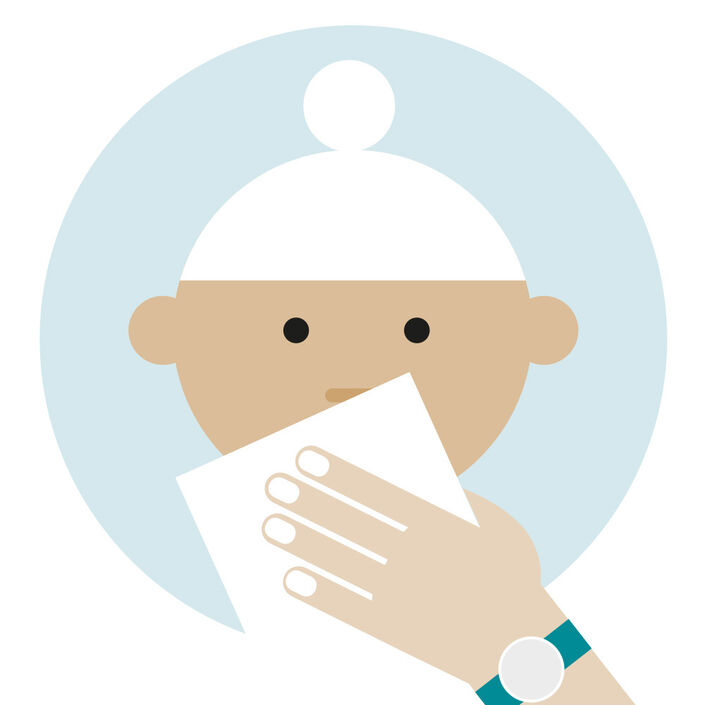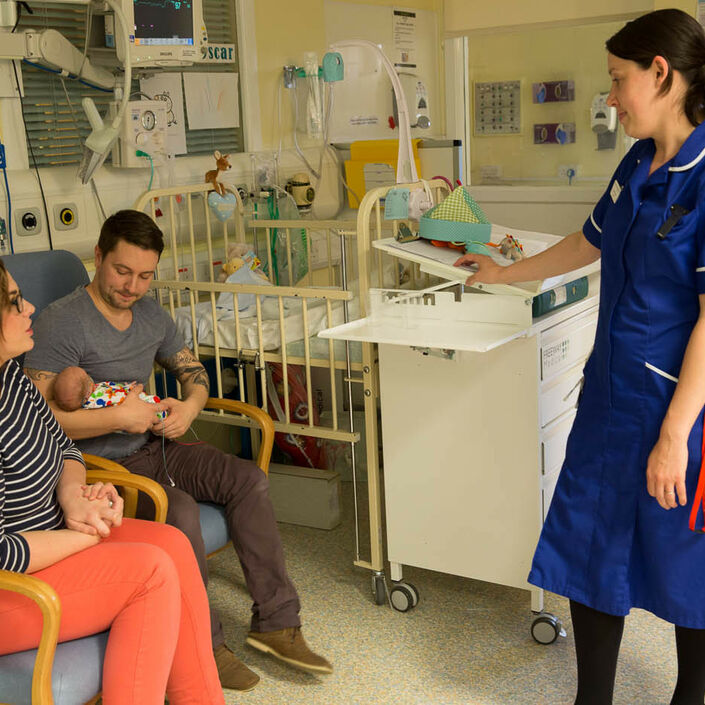After leaving the neonatal unit, you may be worried about your baby becoming unwell. This is something many parents experience, especially when they have become used to the support of the unit staff. Many parents worry that they won’t be able to notice the signs that their baby is becoming unwell.
Babies who are born premature or sick may have weaker immune systems than babies born at full-term. It is important to be prepared if your baby is at high risk, particularly in the winter months. This is to reduce the risk of infection. We have more information about common infectious illnesses.
Some babies may be more snuffly when they come home from the unit, or you may hear a quiet sniffling sound. This may be because of the change in atmosphere and temperature, and more dust at home. The snuffling will settle down, but this may take a few weeks. If your baby seems well otherwise and is able to feed, try not to worry. If you hear a wheezing, whistling or grunting noise when your baby is breathing out, you should see your doctor immediately.
If you are concerned about any changes in your baby’s behaviour, you should see your GP. You can also call 111 for medical help over the phone.
Call 999 immediately if you think your baby might be seriously unwell.
How to check your baby's temperature
Many parents worry about their baby being too hot or too cold. You can firstly check your baby’s temperature by feeling the back of their neck or tummy. It is normal for a baby’s hands to feel cooler than the rest of their body.
To check your baby’s temperature, you can place a digital thermometer under their armpit. Your baby’s temperature should normally be between 36.5 and 37.1°C (97.7 to 98.7°F).
Readmission to hospital
Your baby may need to be readmitted to hospital after they come home. Common reasons for readmission include infection, breathing difficulties and jaundice (yellowing of the skin and whites of eyes). If this happens, it may be a worrying and upsetting time, especially when your baby has overcome so many difficulties already.
Babies who need to be readmitted to hospital are likely to be admitted to the children’s ward, not the neonatal unit. This is a different environment to the neonatal unit, so may feel strange in comparison. You can talk to staff on the unit about how you are feeling. They will be happy to listen and support you.
How to know if your baby is becoming unwell
Some parents worry about how to recognise the signs that their baby is becoming unwell. Here are some of the things to look out for:
- Being more fretful than usual. This means they may be restless, crying more than usual, or fussier than usual.
- A high or low temperature.
- Refusing or being reluctant to feed.
- Vomiting more than usual.
- A change in stools - more frequent, watery or ‘explosive’ than usual.
There are some signs that might show that your baby needs urgent medical advice. These include:
- blotchy skin or a rash that does not fade if you press the side of a clear glass firmly against the skin
- pausing for a few seconds between breaths
- being paler than usual
- being unresponsive, floppy or not waking up as easily as usual
- showing signs of jaundice (yellowing of the skin and whites of eyes)
- difficulty breathing (for example, their breathing being quicker and louder than usual)
- a wheezing, whistling or grunting noise when your baby is breathing out.
If you notice any of these symptoms you should see your GP straight away. You can also call 111 for medical help over the phone. Call 999 immediately if you think your baby might be seriously unwell.
The Lullaby Trust have a Baby Check app that you may find helpful. It takes parents through 19 checks that they can do if their baby show signs of becoming unwell. The app is available on Android and Apple devices. Find out more here.


